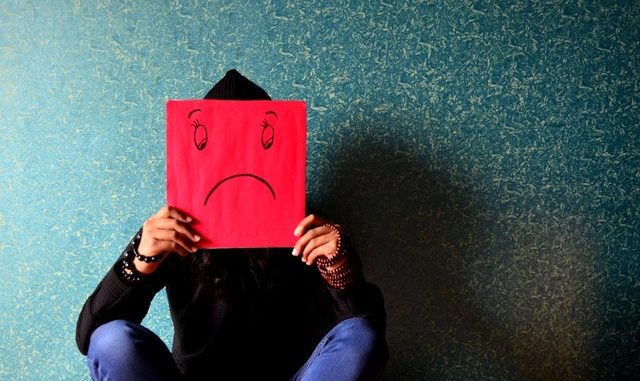
Opening Insights: How?
People are like stained-glass windows. They sparkle and shine when the sun is out, but when the darkness sets in, their true beauty is revealed only if there is a light from within.
ELISABETH KUBLER-ROSS
Loss is one of the hardest experiences for human beings to go through and deal with. Many of us have no idea how to deal with loss or process it, as we tend to stay stuck in our emotions, our feelings and our experiences. The suicide of a child brings up many emotions and experiences:
- Some turn anger inwards, others turn it outwards
- Some see the loss as a personal failure, others as a wakeup call
This blog explores two aspects:
- What suicide is about?
- The different ways we process and deal with loss.
Informational Insights: Suicide, Loss and "ME"
Maria Pasquini of People Magazine wrote:
On Thursday, the mom of 13 shared a heartbreaking Facebook message revealing her “heart is struggling to continue to beat.”
“Normal day, let me be aware of the treasure you are. Let me learn from you, love you, bless you before you depart. Let me not pass you by in quest of some rare and perfect tomorrow. Let me hold you while I may, for it may not always be so. One day I shall dig my nails into the earth, or bury my face in the pillow, or stretch myself taut, or raise my hands to the sky and want, more than all the world, your return,” the 57-year-old radio star began, quoting Mary Jean Irion.
“There will not be another ‘normal day’ with my Zack-Attack, at least not in this life time,” she continued. “No more cooking his favorite foods or bringing home gallons of his favorite juice, no more laughter around the bon fire or Christmas mornings. My heart is struggling to continue to beat.”
“Thank you for your prayers, love and support. Please pray for his grandparents, his siblings, his dad and his friends. We are all doing our best to focus on his joyful heart, his wild free spirit and his smile,” she added.
“He was my wild child; 13 broken bones, umpteen trips to the hospital with appendicitis, tonsillitis, a fractured skull. He was wild but so so so sweet,” the Port Orchard, Washington-based star told PEOPLE in this week’s issue, as she recalled the memories of raising son Zack (one of her three biological children, the other 10 were welcomed through adoption).
Zack’s own struggle began recently, following a Dec. 2016 car accident. “The event traumatized him,” she continued. A painful breakup and an illness followed suit and soon Zack found himself behind in school.
“When he found out he wouldn’t graduate he spiraled into depression, and was honest about it,” said his mom, who quickly “found him doctors, a fabulous counselor and support group.”
Just before the end, “He was doing so well,” she added. “He was looking forward to making up his missed credits, graduating and starting film school. He was fascinated with science fiction and time travel and began to talk about the book A Wrinkle in Time and quantum physics.”
While Delilah declined to share the manner of his death, she said Zack left behind a message. “His goodbye note did not mention sadness, anger, angst or depression, just a pressing madness about feeling like this world was not his home.”
This is yet another round of sadness for the radio star, who after struggles with her own parents and three failed marriages, wed business owner Paul Warner in 2012 — but that same year she also lost 16-year-old son Sammy to complications from sickle cell anemia.
Now, with Zack’s passing, Delilah has decided to take a leave of absence from her radio show to mourn and turn towards her husband, family and millions of listeners for comfort. “The lady who is there for everyone else every single night now needs our love and our prayers sent right back to her,” Delilah’s rep told PEOPLE.
Source: MSN
Possibilities for Consideration: Shifting the Victim Paradigm
To deal with loss, process anger and overcome narcissism requires that we go through a process of causation, understanding, experiential and transformation learning. Understanding the theory of loss, selfishness and depression is not enough, we need a safe environment and process in which we can discover through a collaborative process who we are and who we are not.
The article brings to light several issues worth considering:
- Suicide is often an act of desperation, often there are warning signs that we miss. How can we develop the selflessness needed to assess and discern how to see those who need help and how do we shift suicidal thinking to healthy thinking?
- Depression, as Freud said, is anger turned inwards (anger directed at one's self). Depression is sometimes culturally influenced and environmentally induced due to social conditioning that focuses on WHAT OTHER PEOPLE THINK.
- Many teenagers today search for reason and purpose. Traditional education systems fail to provide them with the tools they need to survive within the world. What can we do to provide them with the moral reasoning and HUMAN UNDERSTANDING AND INTELLIGENCE they so desperately seek?
- In our narcissistic world how often do we experience loss as a personal failure and seek pity from others rather than seeking understanding and change?
- When we experience loss do we assess how can we do better or do we simple remain stuck in self-pity?
Add Your Insight:
I believe that we are solely responsible for our choices, and we have to accept the consequences of every deed, word, and thought throughout our lifetime.
ELISABETH KUBLER-ROSS
